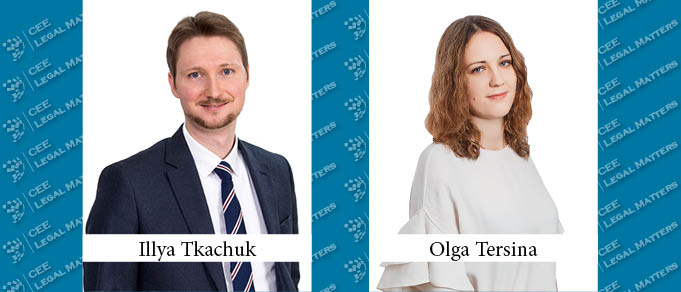Upon lifting of the quarantine rules, many companies start to resume their activity. All of them intend to renew activities with minimum expenses and maximum comfort for their employees. Many companies will look for optimisation options. Below the INTEGRITES team summarises the main solutions available under the effective laws of Ukraine.
- PART-TIME WORK
When may the employer use this option?
The part-time work mode can be applicable when the employees' workload has decreased after the quarantine, and the employer does not require the pre-quarantine number of staff but wishes to preserve the capacity of personnel without dismissals.
What are the types of part-time work mode?
There are such types of a part-time work mode as:
- a part-time day
- a part-time week
- a combination of a part-time day and a part-time week. This combined solution was specifically addressed in Letter of Ministry of Labour and Social Policy of Ukraine No. 713/19/71-07 dated 29 March 2007.
How may the employer introduce such option?
There are the following possible solutions:
- part-time work mode under the agreement between the employee and the employer (in Ukrainian – за угодою між працівником і роботодавцем) which is effective only when the employee gives his/her application to work on a part-time basis, and the employer issues the relevant order; or
- part-time work mode due to the changes in the employer's organisation (in Ukrainian – зміни в організації виробництва і праці) (the "Organisation Changes") which the employer may implement on its own initiative (under the relevant order) only due to the above changes. The important nuances of this option are:
(a) to inform employees whose working hours have been changed about the new working schedule no later than two months before its establishing, and
(b) to agree the part-time work mode with a trade union / other authorised representative of the employees. The importance of these steps was highlighted by the Supreme Court in case No. 766/12431/18 dated 28 August 2019.
What is the remuneration for the part-time work?
The general rule implies the payment which is proportional to the employee's time worked. An important clarification was provided by the Plenum of the Supreme Court in its Resolution "On Practice of Application by Courts of Legislation on Remuneration" No. 13 dated 24 December 1999 ("Resolution of Plenum No. 13"). According to the resolution, work performed over employee’s regular time, but within the full time specified by law, is not overtime and should be paid at a single rate.
What are the main benefits for the employee on a part-time mode?
The main benefits are as follows:
- an employee has a right to have a paid annual vacation (Letter of Ministry of Labour and Social Policy of Ukraine No. 472/13/84-09 dated 7 August 2009)
- generally, working hours before holidays are not reduced for one hour. However, if the employee is on a part-time week mode and works 8 hours on a pre-holiday day, the Ministry of Social Policy of Ukraine recommends to reduce his/her working hours for one hour (Letters No. 395/13/116-14 dated 28 August 2014 and No. 2960/0/107-17/284 dated 22 December 2017).
Is there any risk of inspection in case of introduction of a part-time work mode?
Yes. If the amount of the employees on a part-time mode is increased by 20 and more per cent within a month, this is a ground for the labour authorities to carry out the inspection of the relevant employer (Paragraph 5(6) of the Procedure on Execution of State Control over Compliance with Labour Legislation No. 823 dated 21 August 2019).
- SALARY REDUCTION
When may the employer use this option?
Salary reduction can apply when the employees' workload has not changed after the quarantine, but the employer lacks sufficient funds to pay salaries in full and does not plan a dismissal. Hence, the employer may introduce salary reduction as a temporary measure.
How may the employer undertake the salary reduction?
The options are the following:
- salary reduction on the employer’s initiative / due to the Organisation Changes under the relevant employer's order. The employee should obtain a notice on such reduction (the "Notice on Reduction") no later than two months before its implementation (the "Notice Term"). It is necessary for the employer to agree the reduction with a trade union / other authorised representative of the employees (Letter of State Inspection of Ukraine on Labour Issues No.1276/24/21/01/2216-15 dated 20 July 2015); or
- salary reduction agreed by the parties. In this case, the employer should not send the Notice on Reduction to an employee within the Notice Term which is re-confirmed by Letter of Ministry of Social Policy of Ukraine No. 413/06/186-15 dated 2 October 2015.
Salary reduction should be reflected in the collective bargaining agreement, other internal employer's documents (for example, the Regulation on remuneration) and labour agreements with the employees whose salary is reduced. In addition, the employer should issue an order with new payment conditions of the employee.
Is there any liability for the violation of the Notice Term?
Yes. The violation of the Notice Term may be a ground for the satisfaction of the employee's claims on the remuneration according to the previous conditions for the period of the reduction of the Notice Term (Paragraph 12 of Resolution of Plenum No. 13).
What is the possible minimum salary in case of the salary reduction?
In 2020 the amount of the full-time employee's salary should be not less than UAH 4,723 per month or UAH 28,31 per hour (approximately EUR 160 and EUR 1).
Is it possible to pay the remuneration which is lower than the minimum salary?
Generally, no. An exception is made in case if the employee underperforms in view of the set workload standards, if products are manufactured with defects, and in other cases defined by the law when reasons relate to the fault of the employee (Paragraph 12 of Resolution of Plenum No. 13).
- COMBINING POSITIONS (IN UKRAINIAN – СУМІЩЕННЯ ПРОФЕСІЙ (ПОСАД))
When the employer may use this option?
Combining positions (the "Combining") is applicable when there is a vacant position, and the employee may carry out the obligations under this position (the "Additional Work") jointly with his/her main work.
What are the main features of the Combining?
The main features are as follows:
- the employee performs the Additional Work for the same employer;
- the employee carries out the Additional Work within his/her working hours of the main position; and
- the employee performs the Additional Work under other position or undertakes the obligations of another, temporarily absent employee without the exemption from his/her main work.
How may the employer implement the Combining?
The options are the following:
- the Combining under the agreement between the employee and the employer. The employee submits the application on the Combining to the employer, and the latter issues the relevant order if agrees with a new work schedule of this employee. The order specifies a title of position of the Additional Work, conditions of the performance of the Additional Work and the amount of salary supplements for the Additional Work (he "Salary Supplements") (Explanation of the Head Office of State Labour Authority in Kherson Region dated 21 April 2020); or
- the Combining due to the Organisation Changes under the employer's order. In this case, the employer informs the employee on the Additional Work no later than two months before its implementation. If there is no collective bargaining agreement, the employer should agree the Additional Work and the Salary Supplements with a trade union / other authorised representative of the employees.
What is the amount of the Salary Supplements?
The law specifies this amount only for the employee who works at an enterprise in the public sector (for example, higher education institutions). This amount is up to 50% of the employee's salary for the main work. Hence, the enterprises of other industries and private enterprises as employers may provide for other amount of the Salary Supplements. However, in practice, most private companies apply the same rules.
If there is a collective bargaining agreement, it may envisage specific rules for the Salary Supplements; however, such an amount should be within the salary for the Additional Work. In case of non-specification of the Salary Supplements, the court may specify them taking into account the complexity of the work, its nature, scope, the level of use of the working hours and the employee's salary (Paragraph 15 of Resolution of Plenum No. 13).
In addition, recent court practice confirms the necessity of the payment for the Additional Work (Resolution of Supreme Court in case No. 824/238/19-а dated 24 October 2019).
What are the terms of the Additional Work?
There are two possible situations:
- the Additional Work with a specified term. The term is specified from the very beginning, and after its expiration the employee performs only his/her main work; or
- the Additional Work without a specified term. In this case, the employee and the employer should agree on termination of the Additional Work separately. If the employee intends to finish the Additional Work, he/she submits the relevant application to the employer. However, if the employer initiates termination of the Additional Work, it does this in the manner specified for the Organisation Changes.
If the employer did not issue the order on the Additional Work, would it be the Additional Work?
Yes. If the employee is admitted to the Additional Work without the issuance of the order, it will be considered as the Combining, and such an employee is eligible for the Salary Supplements.
There are different options to regulate the working hours of the employee and pay for them after the end of the quarantine. The choice depends primarily on the employee's workload and the employer's payroll. However, when the employer decides to establish a new work mode for an employee, it should carefully consider the rules and regulations in order to avoid negative consequences.
By Illya Tkachuk, Partner, and Olga Tersina, Associate, Integrites


